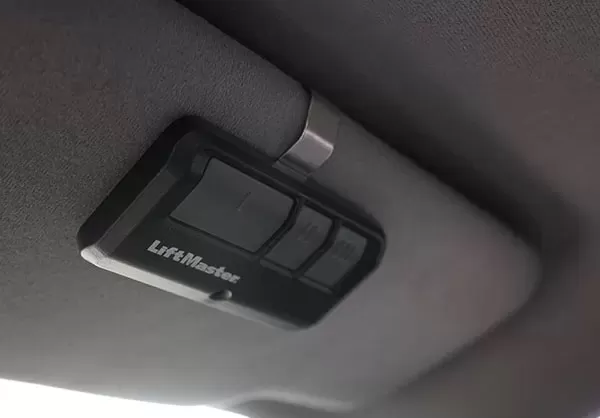Does your garage door wake the neighborhood every time it opens or closes? If your garage door is noisy, upgrading it for a quieter, smoother operation might be easier than you think. By making a few adjustments or switching out specific components, you can reduce the noise significantly. Here’s a guide on how to make your garage door quieter, with tips on quieting garage door springs, silencing garage door rollers, and other noise-reducing solutions.
Why Is My Garage Door So Loud?
Garage door noise can come from several sources, such as old springs, unlubricated rollers, or worn tracks. Common causes of garage door noise include:
- Worn or Rusty Rollers: Metal rollers moving along metal tracks can be quite noisy. Old, rusty rollers are especially loud.
- Loose Hardware: Over time, nuts, bolts, and hinges can loosen, creating rattling sounds.
- Old Springs: Traditional garage door springs are made of metal, and over time, they can rust and creak as they stretch.
- Unlubricated Parts: Without proper lubrication, parts like rollers, springs, and tracks can create friction and noise.
- Loud Garage Door Opener: If you have an older chain-driven opener, it’s bound to be louder than modern alternatives.
Tips to Reduce Garage Door Noise
- Upgrade to Quiet Garage Door Springs
- Springs play a significant role in your garage door’s operation, and upgrading to quieter options can help reduce noise. While standard torsion springs are common, they tend to produce creaks and groans as they age. High-quality, quiet garage door springs are coated and designed to reduce noise during use.
- Pro Tip: Always have a professional handle any work involving springs. They hold a lot of tension and can be dangerous to replace or adjust on your own.
- Install Silent Garage Door Rollers
- One of the most effective ways to quiet a garage door is by installing silent garage door rollers. Nylon rollers, for instance, are a fantastic alternative to traditional steel rollers. They are durable, require less maintenance, and significantly reduce the sound of metal on metal.
- Look for ball bearing nylon rollers, which provide a smooth, silent motion and typically last longer than metal rollers. This simple switch can make an enormous difference in noise reduction.
- Add Lubrication to Reduce Friction
- Regular lubrication can prevent creaks and squeaks that often come from metal-on-metal friction. Use a garage door lubricant (avoid regular WD-40) on moving parts like the rollers, hinges, tracks, and springs. Lubricating these parts can reduce noise while extending the life of your garage door components.
- How to Lubricate Your Garage Door:
- Wipe down the parts to remove any dust or grime.
- Spray a silicone-based lubricant onto the springs, rollers, and hinges.
- Open and close the door a few times to evenly distribute the lubricant.
- Tighten Loose Hardware
- Loose bolts and screws can rattle when your garage door moves, creating unnecessary noise. Check all the hinges, brackets, and fasteners and tighten any that may have loosened over time. Doing this will not only help reduce noise but also improve the door’s performance and lifespan.
- Upgrade Your Garage Door Opener
- When selecting a new opener, look for models specifically designed for quiet operation and noise reduction.
Additional Tips for Garage Door Noise Reduction
- Insulate the Door: An insulated garage door not only improves energy efficiency but can also dampen noise. Insulation reduces vibration and helps absorb sound. Consider adding foam or insulation panels to your garage door.
- Add a Vibration Isolator: Adding vibration isolators to your garage door opener can also help reduce noise. These small rubber pads are installed between the motor unit and mounting brackets, reducing the amount of sound that transfers from the motor to the ceiling and walls.
- Check for Balance: An unbalanced garage door can create strain on various components, leading to unusual noises. If your door doesn’t stay open halfway or feels heavy when opening manually, it may need adjustment.

When to Call a Professional
If you’ve tried these tips and still notice excessive noise, it may be time to call in a professional. A trained technician can inspect your garage door system for any underlying issues that may be causing the noise. Professionals have the expertise to address complex problems, like tension spring adjustments, opener upgrades, and major component replacements.
Final Thoughts
Quieting a noisy garage door doesn’t have to be a hassle. By upgrading to quiet garage door springs, installing silent garage door rollers, and lubricating moving parts, you can reduce the noise and enjoy a more peaceful entry and exit from your home. Regular maintenance and the right components can make a big difference, so don’t wait to give your garage door the quiet transformation it deserves.
For expert assistance or to explore noise-reducing options, reach out to A Plus Garage Doors. Our experienced garage door technicians can recommend the best components and upgrades to help keep your garage door operating smoothly and quietly for years to come.





